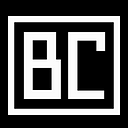Memo: the UX Career Development in the Future with AI
Ultimately speaking, would UX experts eventually lose their jobs?
Recently, many designers and people wanting to switch to UX professions have asked me about the rise of AI tools. They may have come to me because of my previous AI-related experiences and the “AI” keyword on my LinkedIn profile. I appreciate their trust in my thoughts. In the Innovation Adoption Life Cycle chart context, I position myself as an early adopter, if not an innovator. Therefore, my opinion of AI leans toward the positive side.
One big concern is whether products using AI to create wireframes or mock screens will take over designers’ jobs. The answer might be a soft YES because the company will need less design effort and time to finish the prototype. However, the design process cannot be skipped. Nowadays, designers can choose components via Figma or Sketch if a comprehensive design system is ready. AI can help select components at a higher level, such as a module or page cheat sheet level, to build a “Landing page” for you quickly. AI can also identify existing patterns from historical designs to make the designer’s work more efficient.
Still, there is a need for a designer to control the quality and ensure the best outcome aligns with users’ needs and feedback. If you are worried that companies won’t see the value of designers and will let people without design training and experience control the final quality, the problem existed even before AI tools were available. Sadly, some companies don’t understand the value of design and want to cut down on resources and budgets, but that’s the reality.
To stay ahead of the curve in this changing landscape, there are several strategies that designers should consider:
- Continuously learn and upskill to stay informed about emerging technologies and tools, like learning HTML/CSS, a design system, or using Figma instead of Photoshop. Designers must have opinions and make a strong call on which tools to integrate with and how to adopt the process.
- Collecting knowledge to see the change in the world or your industry. It helps designers think of the future and foreknowledge the problems to be solved.
- Cultivate empathy and human-centred design skills, which will remain valuable. Train your empathy muscle to bridge human emotion with experiences better.
- Analyse and translate user needs to help design teams make informed decisions that meet user requirements. First, understand users’ mental modal and workflow, and later give every clear command to the tool.
- Develop a deep understanding of design principles and historical decisions, which will enable designers to evaluate and improve upon AI-generated designs and identify usability testing or A/B testing cases.
- Experiment with new design patterns to stay creative and innovative. Especially since there has yet to be a best practice for Web 3 products.
- Stay current on the latest design trends and be willing to explore and push the boundaries of what is possible, just like what fashion design directors do for luxury brands.
One thing is sure: the role of UX designers will continue to evolve alongside technological advances. By remaining adaptable, curious, and skilled, designers can ensure that they remain valuable contributors to the design process, both now and in the future.
If we think about the longer future, we can imagine a world where AI/ML and robots can do most of the work and society will be self-sufficient. Universal payment will exist, and no one will need to work. In this world, jobs have become a luxury concept that only wealthy people can afford to pay to experience it. People in performance, yoga teaching, or chef roles will be the most popular celebrities.
Enjoy my design sharing?
Feel free to give your support and motivation by clapping 10–30 times, which
will also help us better understand the directions and topics you like.
Subscribe and follow me, and let's keep the conversation going anywhere,
anytime about the latest in design and industry trends.Traditional Chinese version

